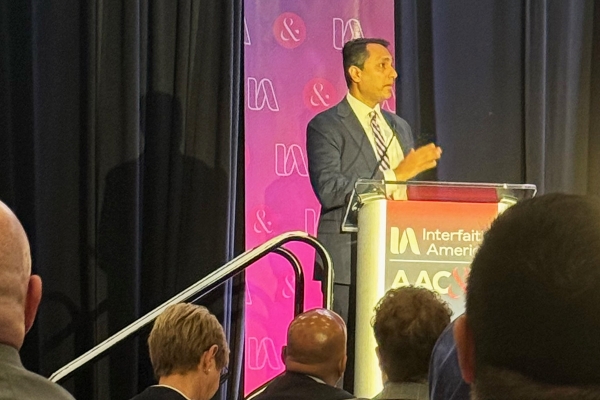The ongoing conflict between Israel and Gaza has dominated headlines in recent weeks, drawing worldwide attention to the devastating toll it has taken on both sides. In the midst of this turmoil, a conference on pluralism was held, bringing together campus leaders and activists to discuss the importance of diversity and inclusivity in higher education.
The conference, held at a university in the United States, featured a diverse range of speakers and panel discussions on topics such as multiculturalism, religious tolerance, and social justice. Participants came from a variety of backgrounds, representing different ethnicities, religions, and political beliefs. Despite the ongoing violence in the Middle East, the conference organizers were determined to create a space for dialogue and understanding.
In a statement released before the event, the organizers emphasized the importance of fostering a sense of community on college campuses in the face of growing polarization and division. They stressed the need for students to engage in respectful and open-minded discussions with those who hold different views, in order to promote understanding and empathy.
One of the keynote speakers at the conference, a professor of sociology, urged students to challenge themselves to step outside their comfort zones and engage with people from diverse backgrounds. She emphasized the importance of listening to different perspectives and being willing to engage in difficult conversations, even when they are uncomfortable.
Despite the challenges posed by the ongoing conflict in the Middle East, the participants at the conference were able to find common ground and engage in productive discussions about the importance of pluralism and diversity in higher education. Many expressed hope that events like this would help to bridge divides and promote understanding among students on college campuses.
As the conference came to a close, the organizers issued a call to action for students to continue the work of promoting pluralism and inclusivity in their communities. They encouraged participants to take what they had learned at the conference and apply it to their daily lives, fostering a more inclusive and understanding environment for all.
In the midst of a global crisis, the pluralism conference offered a ray of hope for a more inclusive and understanding future. By bringing together campus leaders and activists from diverse backgrounds, the event demonstrated the power of dialogue and collaboration in promoting positive change. As the conflict in the Middle East continues to unfold, events like these remind us of the importance of unity and empathy in the face of adversity.



